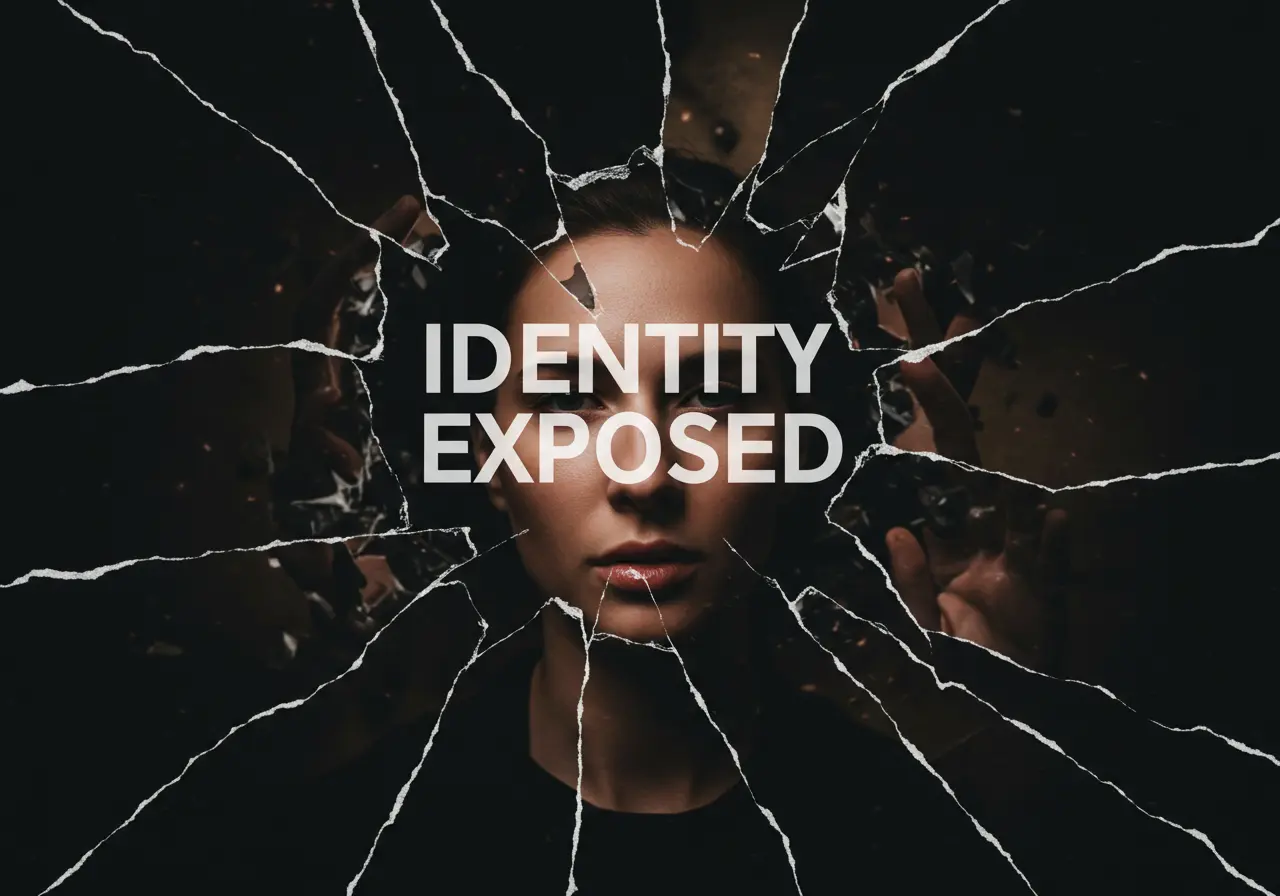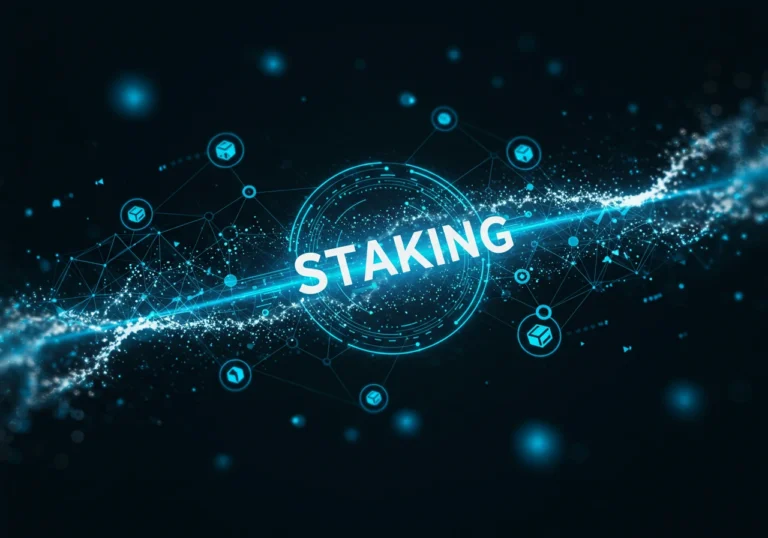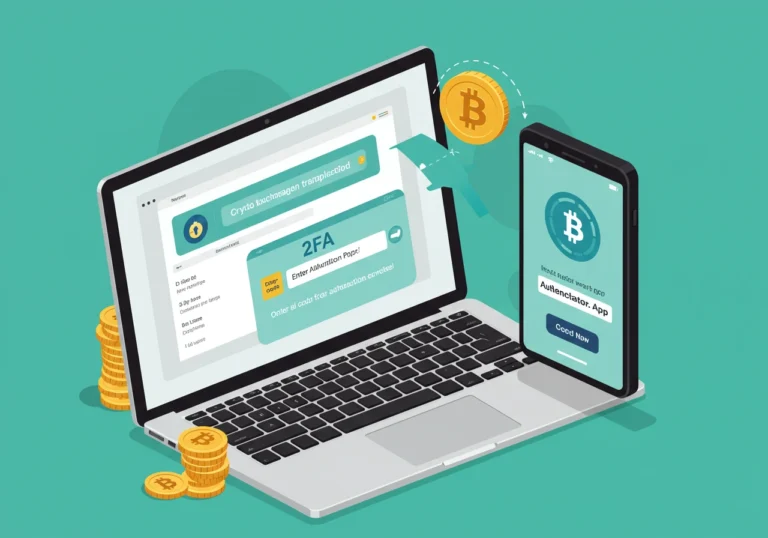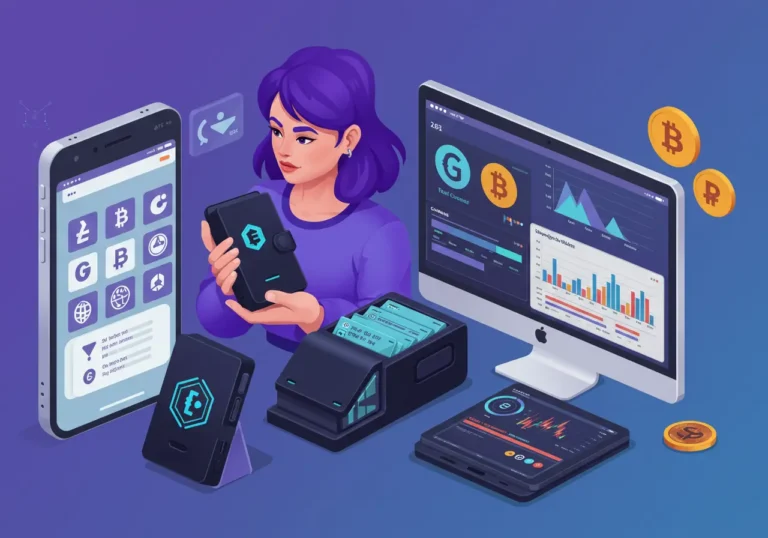Decentralized Identity (DID) and the Evolaution of Online Privacy
What if you could step out of that messy data marketplace and finally be in charge? That’s the heart of Decentralized Identity (DID). It’s not just tech talk. It’s about taking your privacy back. For real.
Why Logging In Feels So Wrong These Days
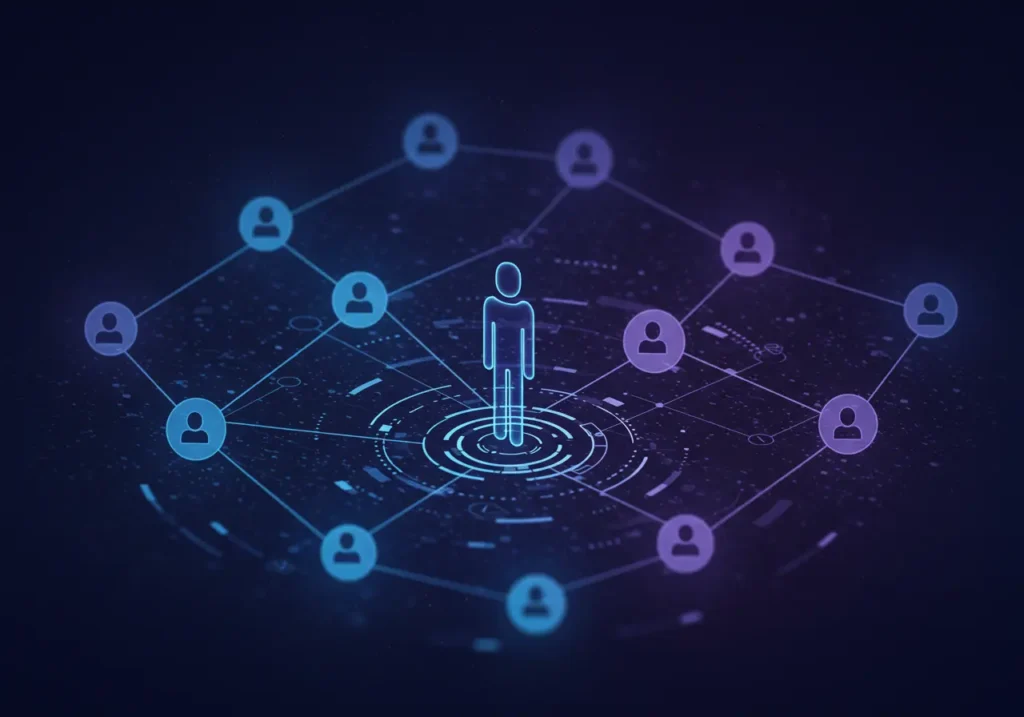
Think about how you usually get into stuff online. “Sign in with Google.” “Log in with Facebook.” Quick? Sure. Easy? Absolutely. But here’s the rub: you’re basically giving those giants permission to be your ID bouncers. They hold your info. Tons of it. And when they get hacked (and holy moly, they do!), your stuff is suddenly up for grabs. It’s like leaving your spare key under the mat for the whole neighborhood. Convenient? Maybe. Smart? Not so much.
- Everyone’s Collecting You: Every shop, every app, every social media feed. They scoop up bits – your name, email, what you buy, what you click, even where you are. They build a giant shadow version of you, mostly to sell you things.
- Password Hell: Remembering hundreds of them? Or that cold sweat when you think one might be compromised? It’s a security nightmare.
- The Fine Print Trap: Who actually reads those endless “I agree” documents? We click, hoping for the best, giving away who-knows-what. Control feels totally out of reach.
- Proving You’re You is a Pain: Need to show you’re over 18 online? Often means uploading your driver’s license photo to some random site. You just have to trust they’ll keep it safe. Yikes.
This whole setup is centralized. Big hubs hold (and often lose) your data. Decentralized Identity technology flips that completely on its head.
So, What is This DID Thing, Really?
Imagine your identity isn’t locked away in some company’s massive server farm. Instead, picture it living safely in a digital wallet, right on your phone or laptop. You own it. You control it. That’s the core idea behind Decentralized Identity (DID).
Think of your actual, physical wallet. You’ve got your driver’s license, your library card, maybe a gym pass. You decide which one to pull out, depending on who’s asking. You wouldn’t hand the librarian your whole wallet just to borrow a book, right? DID works like that, but online.
Your Decentralized Identity (DID) is like a unique digital tag that’s yours alone. Crucially, it’s not owned by Facebook, Google, or even the government. It’s yours. This tag gets anchored securely using something called Blockchain-based identity verification. Think of blockchain like a super-secure, public record book (a distributed ledger) that everyone can trust because no single person runs it. It doesn’t store your private details (like your birthday or address); it just securely notes that your DID exists and checks the digital proofs you carry (Verifiable Credentials).
Table of Contents
How Does This DID Stuff Actually Work? (Keep it Simple!)
Let’s break it down step-by-step, no tech headache needed:
- Your Digital Wallet (The DID Management System): This is just an app on your device. Your personal safe. It holds your unique Decentralized Identity (DID) and all your digital proof cards – called Verifiable Credentials (VCs). Think VCs like digital versions of the cards in your real wallet: a digital driver’s license (from the DMV), a digital diploma (from your uni), a digital proof-of-age. This app is your DID management system.
- Getting Your Digital Proofs (Verifiable Credentials Issuance System): Trusted places (Issuers) give you these digital cards. Your government issues a digital ID. Your uni gives a digital diploma. Your bank issues proof you have an account. They sign these digitally, making them impossible to fake. This is the verifiable credentials issuance system. You store these VCs safely in your wallet app.
- Proving Who You Are (Decentralized Identity Authentication & Identity Ownership Proof Mechanism): Okay, say a new music site (the Verifier) needs to know you’re over 18. Instead of uploading your passport (risky!), your wallet lets you share just a digital “Yes, I’m over 18” proof. You don’t even show your actual birthdate! Your wallet uses your DID and the VC to create a super-secure digital signature. The site checks this signature against the public blockchain (distributed ledger identity management) and instantly sees:
- The proof genuinely came from your specific DID (Identity ownership proof mechanism).
- The proof-of-age was issued by, say, your trusted government.
- It’s still valid and hasn’t been messed with.
This is decentralized identity authentication – proving something specific without oversharing or relying on some central password list.
- The Trust Glue (Secure Decentralized Identity Framework): The DID protocol implementation and the blockchain work together to build this secure decentralized identity framework. The blockchain gives a neutral, global place to check if DIDs and credentials are legit, without holding your sensitive stuff. The protocols are just the rules for how wallets, issuers, and verifiers talk securely to each other.
Why This is a Game-Changer: Your Day with DID
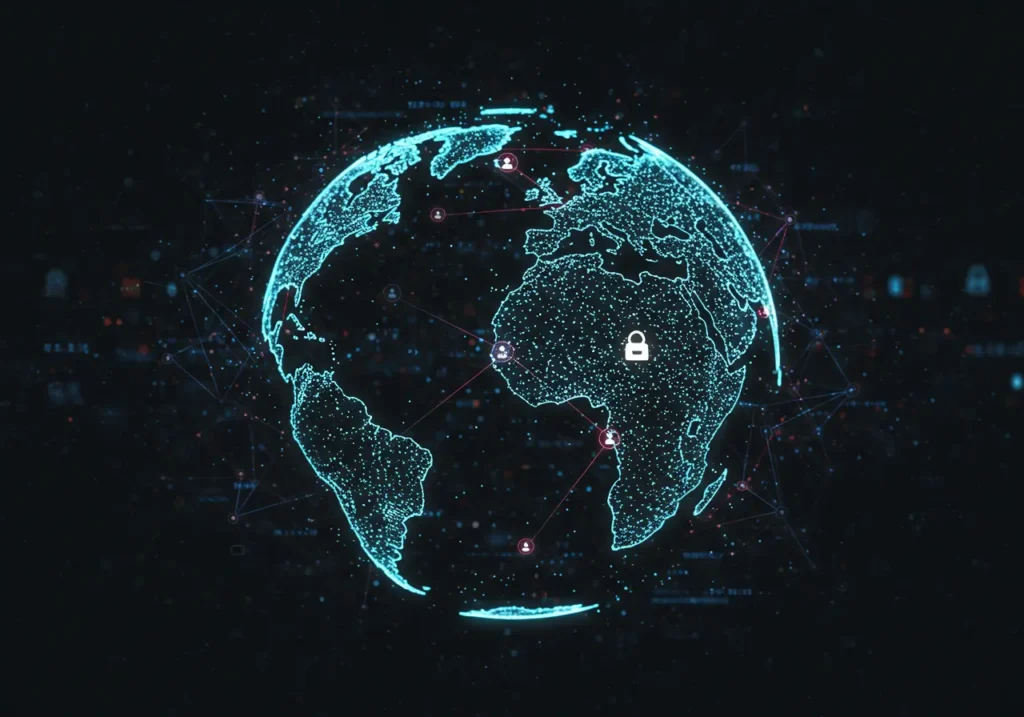
This isn’t sci-fi. Self-sovereign identity solutions like DID can seriously smooth out daily hassles:
- Bye-Bye Passwords: Forget trying to remember “Fluffy123!” for the hundredth time. Log into sites and apps just by proving you control your DID from your wallet. Faster, simpler, way more secure.
- Age Check, No Overshare: Buy that concert ticket or game online by sharing only a “Yep, over 18” proof. No need to send a pic of your license to who-knows-where.
- Job Hunt Smoother: Instantly share verified digital diplomas and references with a potential boss. No more begging your old school for transcripts!
- Travel Less Hassle?: Imagine flashing pre-verified digital travel docs at the airport from your phone. Could speed things up nicely.
- Doctor Visits, Controlled Sharing: Share just your vaccination record or allergy info with the clinic or pharmacy. No need for them to see your entire medical history.
- You’re the Boss: You choose exactly what info to share, who gets it, and for how long. Change your mind later? Revoke access. No more hidden shadow profiles built behind your back.
The Safety Angle: Locking Things Down
A massive win with Decentralized Identity technology is security. Because your sensitive info stays locked in your wallet, it’s not sitting in some company’s giant, hackable database. Even if a service you use gets broken into, hackers might only get useless digital signatures, not your raw data. The secure decentralized identity framework is built to limit the blast radius of breaches.
Blockchain-based identity verification adds serious trust. The distributed ledger makes forging credentials or faking identities incredibly tough. The identity ownership proof mechanism means only you can use your DID to share things. Together, it creates a much tougher nut to crack.
Not All Sunshine and Rainbows: Hurdles Ahead
Like anything new and big, DID protocol implementation has some bumps to iron out:
- Getting Everyone Playing Nice: For DID to truly work, loads of players need to jump in – governments, banks, schools, big tech, websites everywhere. Agreeing on the rules takes time and effort.
- Wallet Responsibility: Keeping your digital wallet safe is key, just like guarding your real wallet or house keys. Lose access? That’s a problem, though ways to recover are being figured out.
- Making it Easy for Everyone: Words like blockchain and cryptography sound scary. Making Self-sovereign identity solutions feel dead simple and approachable is absolutely vital.
- Not Leaving Folks Behind: We gotta make sure everyone has the tools (like a decent phone) and knows how to use them. Fairness matters.
Even with these bumps, things are moving. Governments, big tech, and smaller players are all working on DID management systems and verifiable credentials issuance systems. Why? Because the upside – for your privacy and security, and for businesses battling fraud – is just too good to pass up.
Wrapping Up: A Brighter, More Private Online Life
Let’s be honest, our online identity journey has been a bit of a mess. We gave away privacy for convenience without quite realizing the cost. Decentralized Identity (DID) offers a real way out. It’s about handing the power back. To you.
It’s walking into that digital marketplace, not with your valuables on display, but tucked safely in your own digital wallet. You choose what comes out, who sees it, and when. You prove you’re you without spilling your life story. It’s about identity ownership proof mechanism becoming normal, not some tech fantasy.
This shift in online privacy isn’t just about dodging ads or hackers. It’s about respect. Feeling safe. Feeling in control. Feeling truly at home online. The tech behind it – the secure decentralized identity framework, the distributed ledger identity management, the DID protocol implementation – is clever stuff underneath. But for you and me? It promises something beautifully straightforward: control, privacy, and security. Finally in our hands.
This change isn’t just coming; it’s already starting to happen. Ready to hold onto your keys?
Quick Recap: DID in a Nutshell
- You’re in Charge: Decentralized Identity (DID) means you control your online ID, not companies.
- Your Digital Safe: An app (your DID management system) holds your unique DID and digital proofs.
- Ditch the Passwords: Log in securely by proving you own your DID. Goodbye, “password123”!
- Share Smarter: Prove your age or qualifications without oversharing your whole life.
- Built on Trust: Blockchain-based identity verification and distributed ledger identity management keep things secure without holding your private data.
- Tighter Security: Your sensitive info stays with you, making big breaches less damaging.
- The Goal is Yours: Self-sovereign identity solutions aim for you to have total control over your digital self.
- Easier Checks: Businesses can trust your credentials fast using decentralized identity authentication.
- Work in Progress: Getting everyone onboard and making it easy are the big tasks ahead.
- It’s Empowering: DID is fundamentally about giving you privacy, security, and control online. Simple as that.

Hello, I’m Edmilson Dias, founder of CoinBringer. I created this platform to guide people through the fast-moving world of cryptocurrency with clarity and safety. With years of research in blockchain and digital security, my goal is to translate complex topics into practical knowledge, offering reliable tutorials, safety insights, and guidance for both newcomers and experienced users.
Discover more from CoinBringer
Subscribe to get the latest posts sent to your email.

